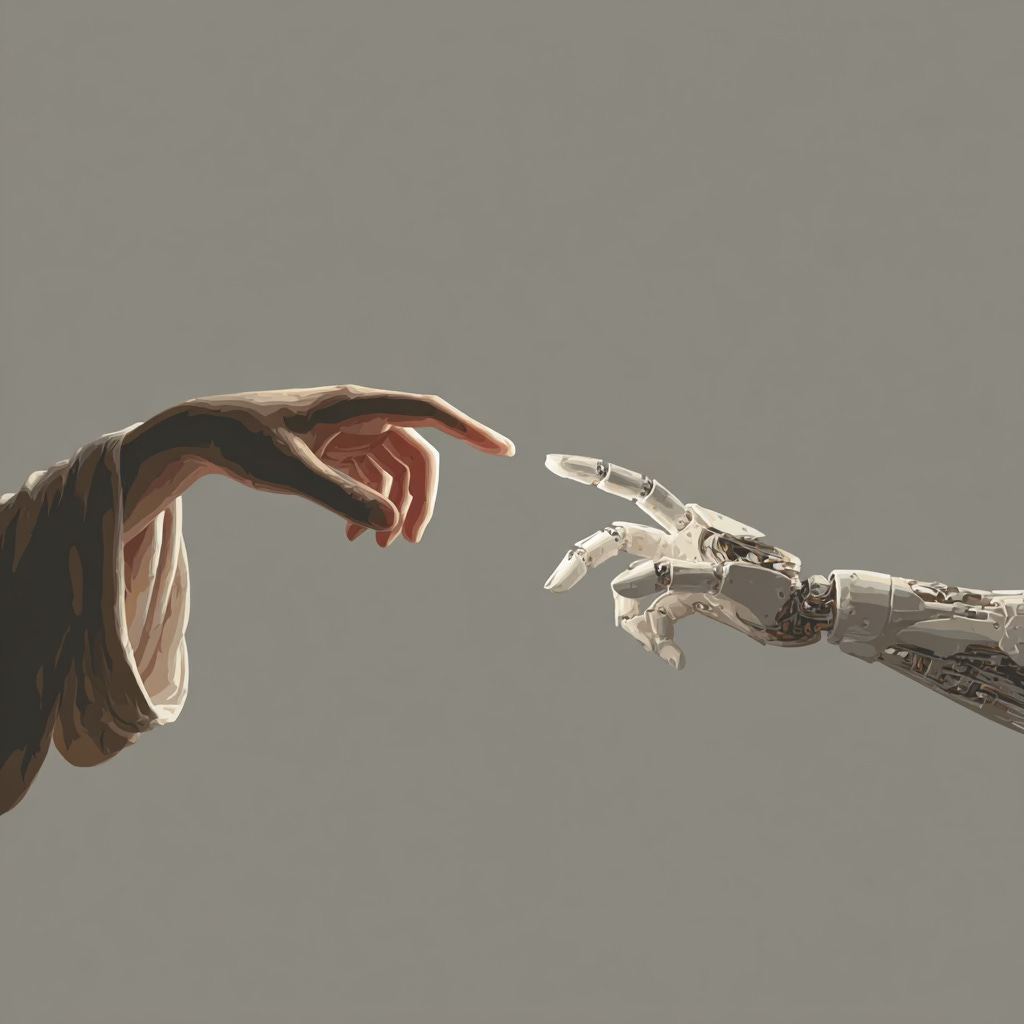The economics of AI
and how it can transform companies
I’ve been thinking recently about how AI can change how companies operate other than the automation everyone seems to expect, which by the way is already happening (for example, companies customer services have been largely replaced by chatbots and handle a wide range of customer inquires 24/7) but not at such significant degree.
One of the biggest benefits of AI is that we can all have (all the time) a personal tutor. And just the amount of value we can get out of speaking for an hour with an LLM is giant and this is indeed the first time in history where we can all be self taught. Just like the opportunity of having this one to one tutoring where you can go wherever you want with your curiosity and ask whatever the questions to an LLM that virtually has a compilation of human knowledge is even hard to conceptualize. You have this entity that is available to serve you 24/7 and knows way more than you do (no matter how smart you are) and I really think it’s a waste if you never lost some hours in trying to navigate your own curiosity and see where an LLM takes you. I think overall people still underestimate how AI will affect our lives in the future and bellow I’ll attempt to present perhaps one of the most valuable aspects of this new age of AI.
There’s this view that as a company gets bigger, the amount of quality in its employees decreases. So, like the founders of the startup are (probably) highly talented and important (which is somewhat obvious) for its success but as the company starts getting bigger, the overall talent per employee (or talent per capita) decreases. The utility of these employees also seems to decrease, in the purely utilitarian sense. With this framework, if the CEO is one of the founders, then yes, he’s that much better off comparing to other employees and deserves the exorbitant amount of money, but overall is very difficult to really measure how important a CEO is. They obviously can’t control everything nor accompaining every product interaction with the consumer. So, one of the ways we lose overall utility and talent as the company gets bigger is that initially in your startup, everyone knows what everyone knows. If I know ten ways to build a fire and you know ten kinds of wood to burn, then together we’ve got hundred ways to stay warm. But like this ability to combine knowledge decreases as the company (and presumably this also applies to the society?) gets bigger. And there’s already a lot of stuff that somebody knows but you don’t know that they know it so you can’t just ask them. So this is where AI comes in. When you ask an LLM a question, it doesn’t just return a webpage. When you talk with an LLM you’re kind of talking with all the people that contributed to its answer, but you and those people didn’t had to collaborate because AI did it for you. You kind of keep operating like a startup eve though you’ve already scaled your company. So there are some points here. So, following the observation that as the company gets bigger the amount of talented people per capita decreases, is not totally right. It’s not that your company attracts less talented people, or it’s less interest in hiring talented people. It’s just that at some level, the talent doesn’t seem to matter anymore. The value of a single worker decreases as the company gets bigger. In the beginning of the startup, every employee is fundamental and decisive in the shape the company will take (and even if will take a shape), but as it gets bigger, every new employee kind of losses significance over the growth of the company. Every new employee is just not that valuable anymore, no matter how talented you are, you just need to get your job done (unless you’re being hired for a top position like for being the CEO which in that case you’re definitely very valuable and is precisely the competition for hiring you that originates the exorbitant income that most CEOs get). It’s not so much about what you can offer of new to the company, but just that you’re work is already attributed and you should focus in getting it done. But with AI this can change, you can be more than “just one employee in five thousand”, you can truly make a difference. Precisely because everyone can know what you know. Your value as employee increases exponentially. So now, even though you’re not working for a startup, you’re (marginally) as valuable as if you were working for a startup. Of course that it’s not really quite the same because the company doesn’t depend particularly on you to succeed in the case a startup would, but your knowledge and skills are as important. But this is only right if there’s an hierarchy, because if you’re a decentralized system, then you’re (allegedly) as valuable and powerful as everybody else.
I am a big fan of Joseph Henrich’s book “The secret of our success” where he attempts to provide an explanation of our species immense success. As he defends, the secret of our success it’s not so much about individual IQ or individual intelligence, it’s about our collective brain and our ability to interconnect knowledge. So, probably Henrich would say that AI would increase the collective brain because it helps us interconnect our knowledge regardless of (physical) barriers.


